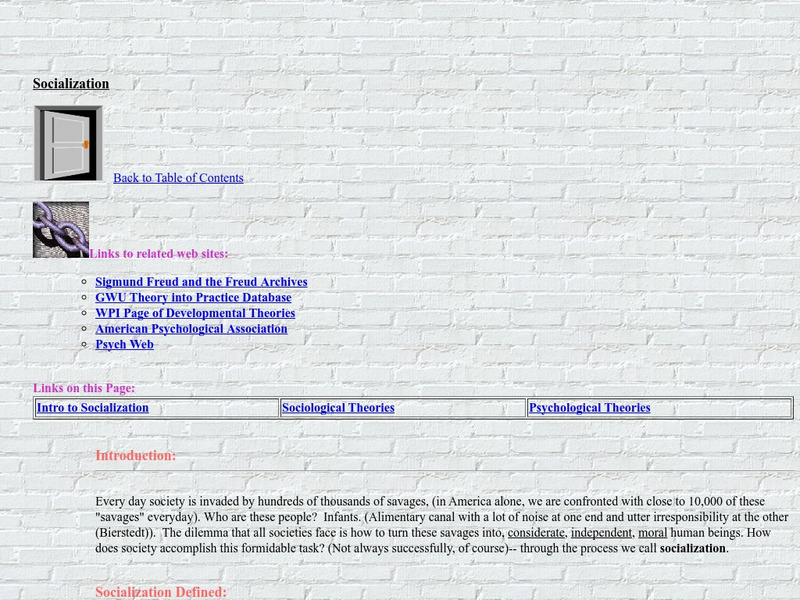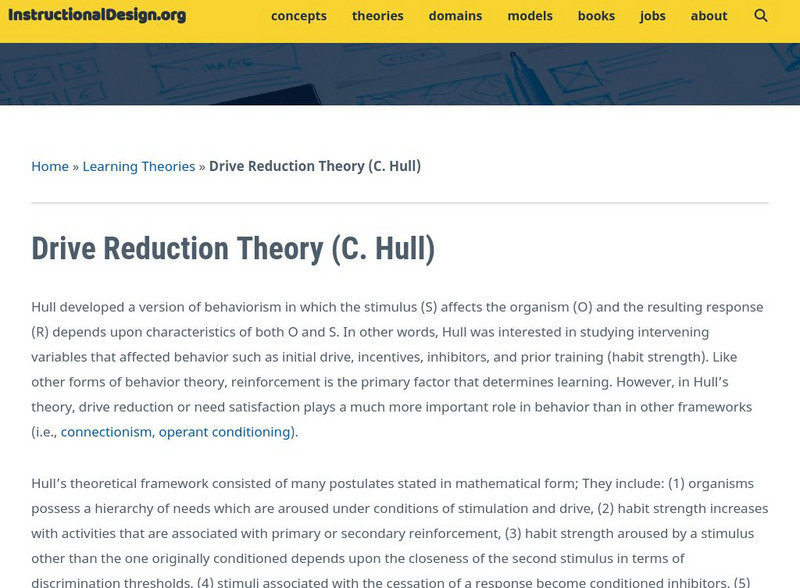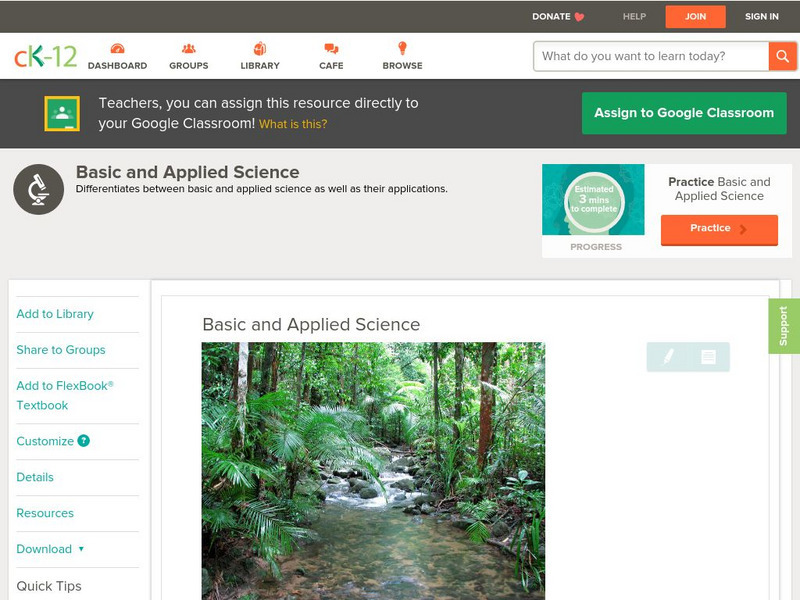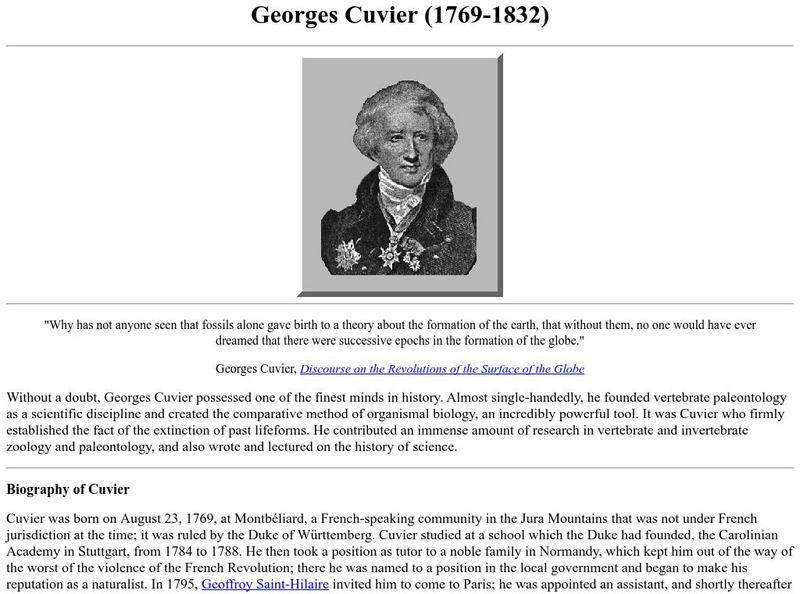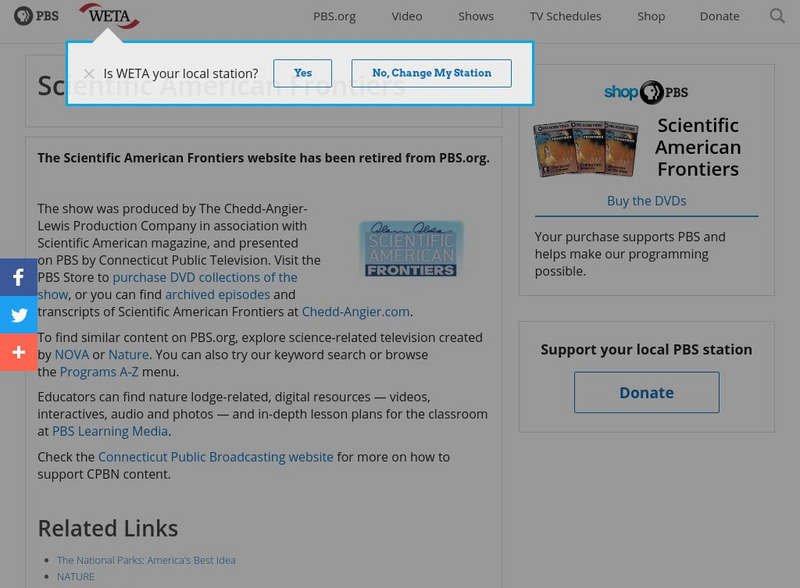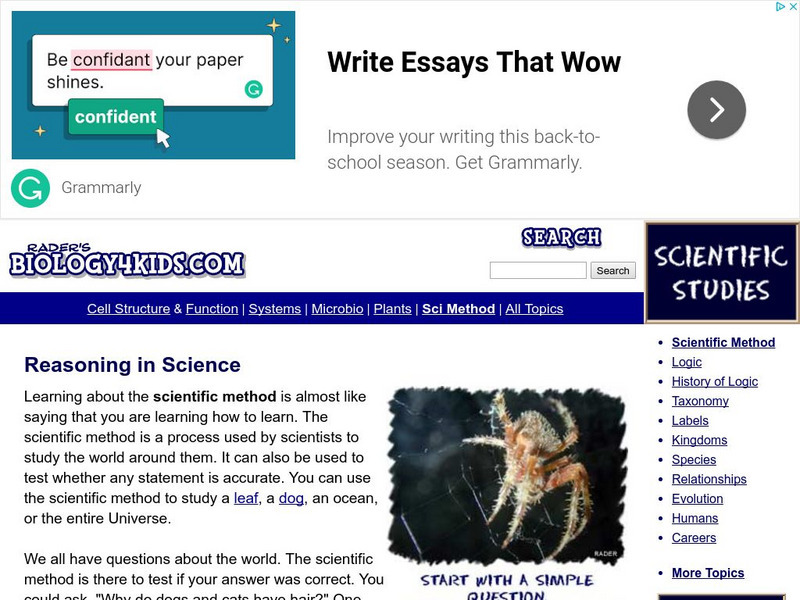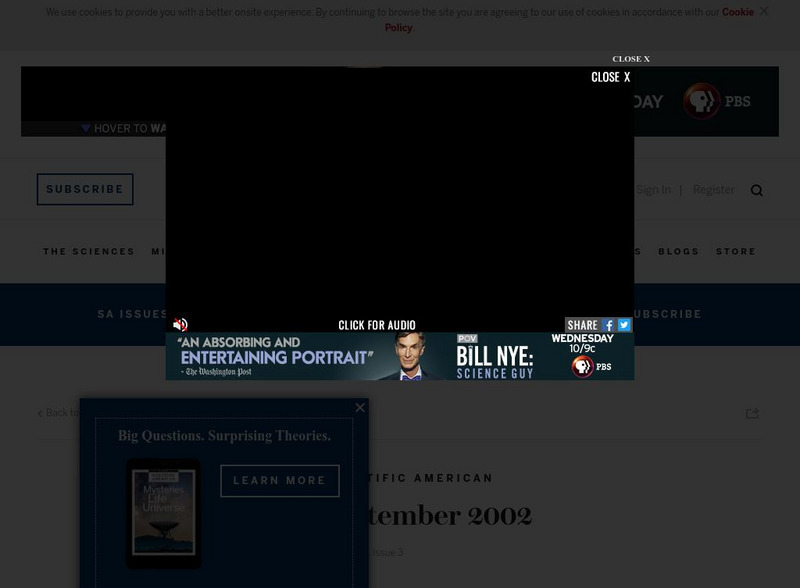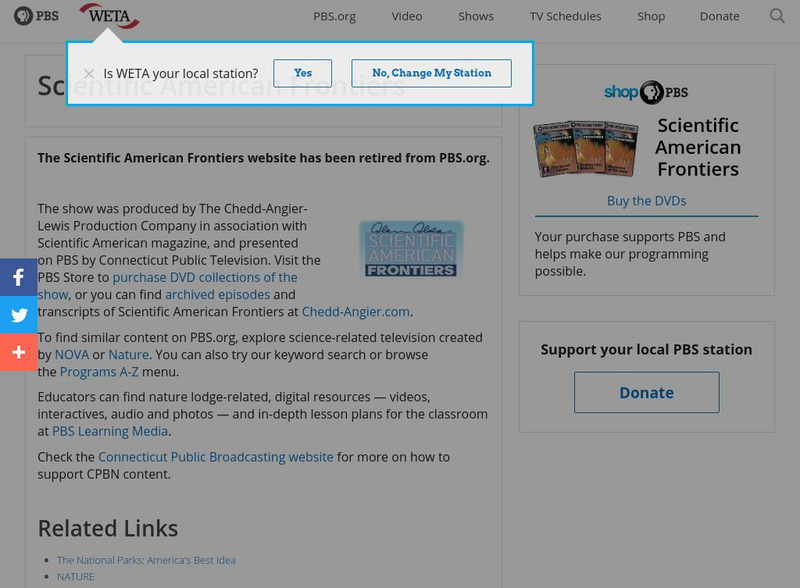Soft Schools
Soft Schools: Biological Foundations/scientific Method Quiz
Take this interactive, multiple-choice quiz over biology concepts and the scientific method, then review your score and any missed questions at the end.
CPALMS
Florida State University Cpalms: Florida Students: Scientific Laws
Scientific law is defined and contrasted to societal laws. Examples are given.
Texas Instruments
Texas Instruments: Divisibility Rules! Using Scientific Calculators
Concepts and skills covered in this activity include number theory, divisibility rules, multiples, factors, and problem-solving skills.
Story Behind the Science
Story Behind the Science: The Story of Dark Matter [Pdf]
The scientific history behind the discovery of dark matter. Questions are posed throughout about how theories are developed to provide possible explanations of natural phenomena.
Upper Canada District School Board
Tom Stretton's Chemistry Pages: Atomic Theory Modern Ideas
This online slide show helps students understand modern scientific thinking which has shaped modern atomic theory.
PBS
Pbs Teachers: Scientific American: Science Italian Style: Where's the Matter?
Explore some of the hard questions and issues related to scientific research and project funding. Role-play a mock Congressional hearing to discuss the wisdom of a new scientific venture with no perceivable practical use to mankind.
Varsity Tutors
Varsity Tutors: Hotmath: Graphing Calculator Practice Problems Number Theory
Practice using your graphing calculator for number theory problems, including prime factorization, greatest common factor, least common multiple, and scientific notation. If you get stumped or if you would like to check your work, then...
Vision Learning
Visionlearning: Dalton's Playhouse
Travel back in history and visit the laboratories of Priestley, Lavoisier, and others. Take part in simulations of the experiments which laid the foundation for the scientific field of chemistry. Learn about the discoveries which lead to...
Science Struck
Science Struck: Biography of Albert Einstein
The life and many accomplishments of Albert Einstein are detailed in this article. Includes descriptions of his scientific theories and contributions.
Virginia Commonwealth University
Vcu: J. Mahoney: Socialization
Understand the researched agents of, four types of, and multiple key features contributing to the scientific theories of establishing socialization for individuals and cultures through this comprehensive document.
The History Cat
The History Cat: Isaac Newton
Profile of Isaac Newton, with a description of his scientific theories, the impact he had on the world of science in his day, and the influence his ideas still have in the world today.
Digital History
Digital History: Fundamentalism and Pentecostalism
The late 19th century was a time of scientific theory, inquiry, and teaching. Read about the backlash to such modernism in the early 20th century with the ideas from Christian Fundamentalism and Pentecostalism. Find the five fundamentals...
Other
Tip: Drive Reduction Theory
This site from the Theory Into Practice Websit provides scientific explanation of the drive reduction theory proposed by American psychologist Clark Hull. Good example and list of main principles.
CK-12 Foundation
Ck 12: Life Science: Basic and Applied Science
[Free Registration/Login may be required to access all resource tools.] Science can be "basic" or "applied." The goal of basic science is to understand how things work. Basic science is the source of most scientific theories. Applied...
PBS
Wnet: Thirteen: Workshop Constructivism: Paradigm for Teaching: Learning
What is constructivism? Use this informative site to learn more about this theory and how it is incorporated into teaching and learning.
University of California
Ucmp: Georges Cuvier
This site from the University of California, Berkeley offers a biography of George Cuvier. Scientific ideas of George Cuvier are presented, such as those related to comparative anatomy, fossils, the idea of extinction, and others....
Indiana University
Indiana University: Science vs. Non Science
This mini-lesson at the Evolution and Nature of Science Institute site from Indiana University provides a criteria by which students can evaluate an idea or explanation for scientific credibility.
PBS
Pbs Teachers: Scientific American: About All You Can Eat: Feast or Famine
Investigate the theory that including desert plants such as mesquite and cactus in a diet can help control obesity and diabetes. Design a scientific experiment that will test this hypothesis, using control variables, observation and...
Quia
Quia: Nature of Science Scientific Method Concentration
Play a game of concentration by matching terms used in the scientific method to their proper description.
PBS
Pbs Teachers: Scientific American: Animal Einsteins: Who Needs Words, Anyway?
Explore the theory that animals can learn to comprehend abstract concepts by observing to see if specific animal calls are associated with specific actions. Use scientific observation and record-keeping to collect and analyze data.
Biology 4 kids
Biology4 Kids: Scientific Method
This resource breaks down the steps of the scientific method and distinguishes hypothesis, theory and law. A quiz is also available to check your understanding.
Scientific American
Scientific American: Einstein's Hot Time
This article, published by Scientific American (September 2002), re-publishes a short paper by Albert Einstein which "explains" relativity to the layman the pretty girl/hot stove abstract.
PBS
Pbs Teachers: Scientific American: Expedition Panama: Bee Lines
Emulate the work of entomologists and explore biodiversity by collecting insects from different sites and keeping records of various populations. Develop a theory about insects and design a way to test it.
Wikimedia
Wikipedia: Max Planck
Discover the life and accomplishments of the great German scientist Max Planck. This site also provides links to sites explaining theories and scientific terms that are associated with Planck.


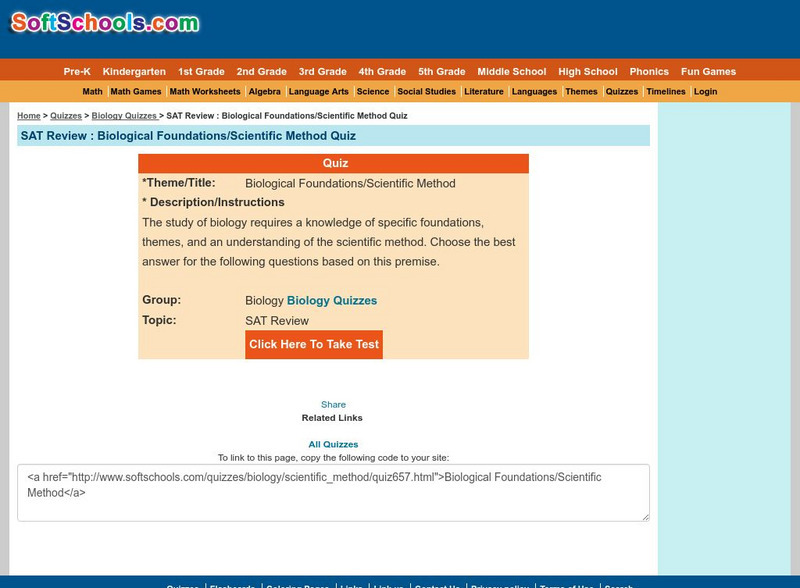


![Story Behind the Science: The Story of Dark Matter [Pdf] Article Story Behind the Science: The Story of Dark Matter [Pdf] Article](https://d15y2dacu3jp90.cloudfront.net/images/attachment_defaults/resource/large/FPO-knovation.png)



